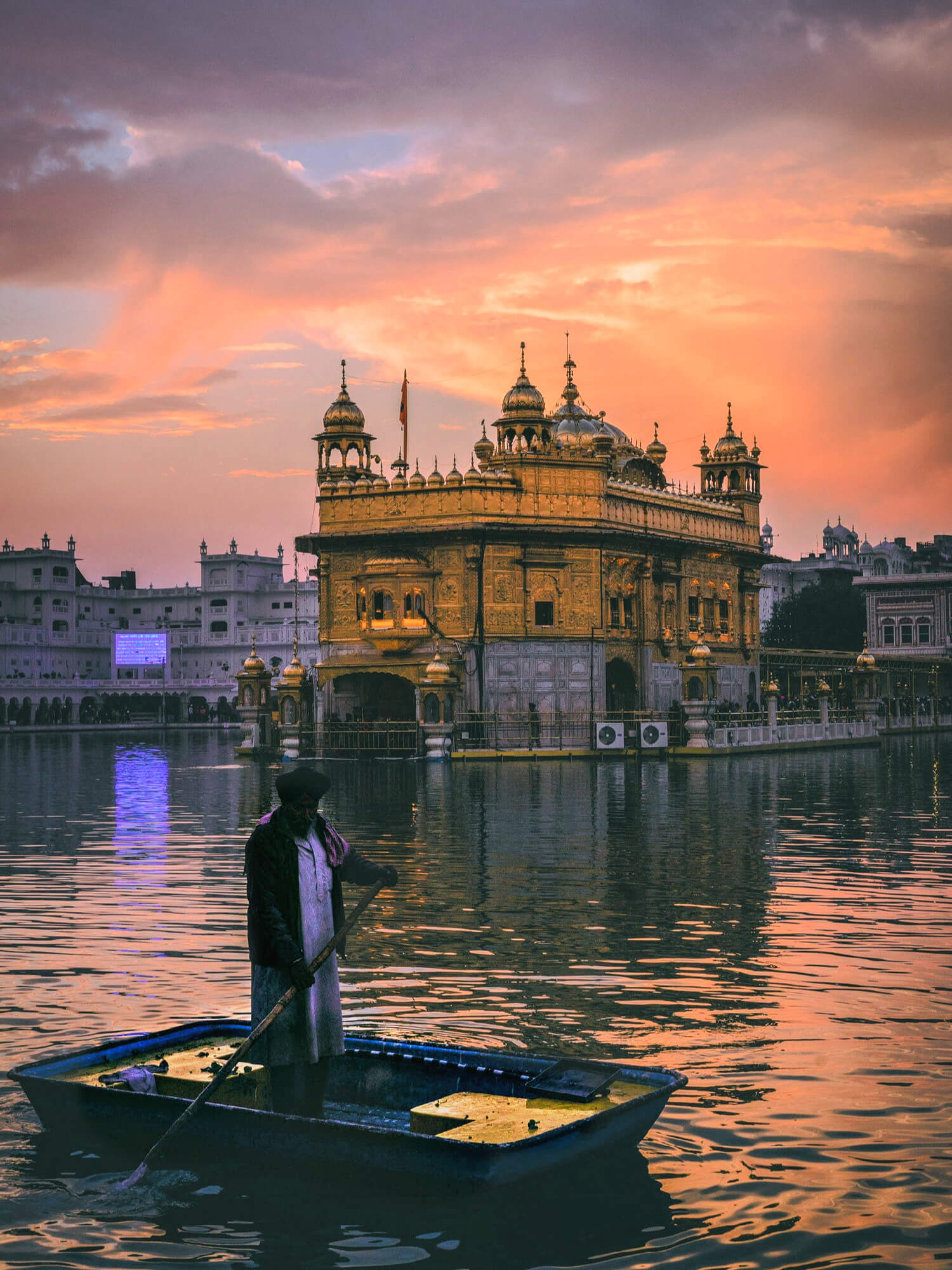“Unique Travel Experience in Pakistan
Related Articles Unique Travel Experience in Pakistan
- Journey To The Colorful Landmarks Of South Korea: A Kaleidoscope Of Culture And History
- Unveiling The Fascinating Charms Of Lakes In Portugal
- Peru’s Best-Kept Secrets: Enchanting Hot Springs
- Exploring The Unique Castles Of Peru
- Australia’s Best Kept Secrets: Magical Castles
Introduction
With great enthusiasm, let’s explore interesting topics related to Unique Travel Experience in Pakistan. Come on knit interesting information and provide new insights to readers.
Table of Content
Okay, here’s a comprehensive article about unique travel experiences in Pakistan, aiming for around 1600 words. It covers a range of topics, from cultural immersion to adventure travel, and tries to highlight the less-common, more enriching experiences the country has to offer.

A Journey Beyond the Ordinary: Unique Travel Experiences in Pakistan
Pakistan, a land often painted with broad strokes in the global narrative, holds within its borders a tapestry of experiences that defy easy categorization. Beyond the headlines and the stereotypes, lies a country brimming with breathtaking landscapes, a rich and complex history, and a people whose warmth and hospitality are legendary. For the adventurous traveler seeking something beyond the well-trodden path, Pakistan offers a wealth of unique and unforgettable journeys. This isn’t just about seeing the sights; it’s about immersing yourself in the culture, connecting with the people, and discovering the soul of a nation.
1. Immersing Yourself in Sufi Mysticism:
Pakistan is a spiritual heartland, deeply rooted in Sufi traditions. Instead of just visiting the grand Sufi shrines (which are, of course, worth seeing), consider a deeper immersion into this mystical world:
-
Attend a Qawwali Performance: Qawwali, the devotional music of the Sufis, is a powerful and moving experience. The rhythmic chanting, the soaring vocals, and the hypnotic percussion create an atmosphere of intense spiritual energy. Seek out authentic performances, often held at shrines or during festivals. Smaller, more intimate gatherings can be even more profound. Look beyond the well-known venues in Lahore and Karachi; smaller towns often host equally compelling performances. Learn about the poetry being sung – understanding the meaning enhances the experience tenfold.
-
Visit Lesser-Known Sufi Shrines: While the shrines of Data Ganj Bakhsh in Lahore or Shah Abdul Latif Bhittai in Sindh are significant, explore some of the smaller, more secluded shrines. These offer a more intimate glimpse into local Sufi practices. Research shrines in regions like Southern Punjab or Balochistan (exercise caution and consult travel advisories for the latter). Engage respectfully with the caretakers and devotees, asking questions and learning about the local traditions associated with the saint.
-
Learn about Sufi Philosophy: Before or during your trip, delve into the teachings of prominent Sufi figures like Rumi, Bulleh Shah, and Fariduddin Ganjshakar. Understanding the core tenets of Sufism – love, tolerance, and the search for inner truth – will enrich your experience of the culture and the people. Consider taking a short course or workshop on Sufi philosophy offered by local scholars or cultural centers.
2. Trekking Beyond the Karakoram Highway:
The Karakoram Highway (KKH) is undoubtedly a spectacular feat of engineering and a gateway to stunning mountain scenery. However, to truly experience the majesty of the Pakistani Himalayas, venture beyond the main road:
-
Explore the Side Valleys of Gilgit-Baltistan: The Hunza, Nagar, and Skardu valleys are well-known, but consider trekking in less-visited valleys like the Shimshal Valley, the Chapursan Valley, or the Ghizer Valley. These offer unparalleled opportunities for solitude, pristine landscapes, and authentic cultural encounters with local communities.
-
Undertake a Multi-Day Trek: Instead of just day hikes, embark on a longer trek that takes you deeper into the mountains. Popular options include the Snow Lake Trek (a challenging but rewarding trek to the world’s largest glacial basin outside the polar regions), the Fairy Meadows Trek (leading to stunning views of Nanga Parbat), or the K2 Base Camp Trek (for experienced trekkers). Hire a local guide and porter to support the local economy and ensure your safety.
-
Consider a Winter Trek: While many treks are inaccessible in winter, some lower-altitude treks offer a unique perspective on the mountains covered in snow. The views are breathtaking, and the crowds are non-existent. However, be prepared for extremely cold conditions and ensure you have the necessary equipment and experience.
3. Discovering the Ancient Civilizations of the Indus Valley:
Pakistan is home to the remnants of the Indus Valley Civilization, one of the world’s oldest urban societies. Go beyond the standard tours of Mohenjo-daro and Harappa:
-
Explore the Lesser-Known Archaeological Sites: While Mohenjo-daro and Harappa are the most famous sites, numerous other Indus Valley Civilization settlements are scattered throughout Sindh and Punjab. Visit sites like Kot Diji, Mehrgarh (predating the Indus Valley Civilization), or Amri to gain a more comprehensive understanding of this ancient culture. These sites often receive fewer visitors, allowing for a more intimate and contemplative experience.
-
Engage with Local Archaeologists and Historians: Seek out opportunities to speak with local experts who are working to preserve and understand the Indus Valley Civilization. Visit local museums and research institutions to learn about the latest discoveries and ongoing research. Their insights will provide a deeper appreciation for the significance of these ancient sites.
-
Connect the Past to the Present: Reflect on the legacy of the Indus Valley Civilization and its influence on modern-day Pakistani culture. Look for connections in the art, architecture, and traditions of the region. Consider how the Indus Valley Civilization’s emphasis on urban planning, sanitation, and trade continues to resonate today.
4. Experiencing the Hospitality of the Kalash People:
The Kalash Valley, nestled in the Chitral region of Khyber Pakhtunkhwa, is home to the Kalash people, a unique ethnic group with their own distinct culture and traditions.
-
Attend a Kalash Festival: The Kalash festivals, such as Chilam Joshi (spring festival), Uchau (autumn harvest festival), and Joshi (winter festival), are vibrant celebrations filled with music, dance, and traditional rituals. Attending a festival offers a unique opportunity to witness the Kalash culture firsthand. Be respectful of their traditions and customs, and ask permission before taking photographs.
-
Stay in a Kalash Guesthouse: Instead of staying in a standard hotel, opt for a guesthouse run by a Kalash family. This will allow you to interact with the local community, learn about their daily lives, and experience their hospitality.
-
Learn about Kalash Beliefs and Customs: Before your visit, research the Kalash religion, social structure, and customs. This will help you understand and appreciate their unique way of life. Engage respectfully with the Kalash people, asking questions and showing genuine interest in their culture.
5. Exploring the Architectural Wonders of Lahore:
Lahore, the cultural heart of Pakistan, is a city brimming with architectural gems from various periods of history.
-
Go Beyond the Lahore Fort and Badshahi Mosque: While these iconic landmarks are essential, explore some of Lahore’s lesser-known architectural treasures, such as the Wazir Khan Mosque, the Shahi Hammam (Royal Bath), or the Tombs of Jahangir and Nur Jahan. These sites offer a more intimate glimpse into the city’s rich history and artistic heritage.
-
Take a Guided Walking Tour of the Walled City: Explore the narrow streets and hidden courtyards of Lahore’s Walled City with a knowledgeable local guide. Discover the city’s architectural secrets, learn about its history, and experience its vibrant atmosphere.
-
Visit the Lahore Museum: The Lahore Museum houses a vast collection of artifacts from various periods of Pakistani history, including Gandhara sculptures, Mughal paintings, and Sikh relics. Spend time exploring the museum’s exhibits and learning about the country’s rich cultural heritage.
6. Embracing the Culinary Delights of Pakistan:
Pakistani cuisine is a diverse and flavorful blend of influences from Central Asia, the Middle East, and the Indian subcontinent.
-
Explore Local Food Streets: Venture beyond the tourist restaurants and explore the local food streets, such as Gawalmandi in Lahore or Burns Road in Karachi. Sample a variety of traditional dishes, from kebabs and biryanis to nihari and haleem.
-
Take a Cooking Class: Learn how to prepare traditional Pakistani dishes by taking a cooking class with a local chef. This will give you a deeper appreciation for the ingredients, techniques, and flavors of Pakistani cuisine.
-
Visit a Local Market: Explore the bustling local markets and discover the wide variety of spices, fruits, and vegetables that are used in Pakistani cooking. Engage with the vendors and learn about the different ingredients and their uses.
7. Witnessing the Wildlife of Pakistan:
Pakistan is home to a diverse range of wildlife, from snow leopards and markhors in the mountains to Indus River dolphins and crocodiles in the rivers.
-
Visit a National Park or Wildlife Sanctuary: Explore one of Pakistan’s national parks or wildlife sanctuaries, such as the Khunjerab National Park (home to snow leopards and ibex), the Hingol National Park (home to crocodiles and various bird species), or the Deosai National Park (known as the "Land of Giants").
-
Go Birdwatching: Pakistan is a paradise for birdwatchers, with a wide variety of resident and migratory bird species. Visit wetlands, forests, and mountains to spot different types of birds.
-
Support Conservation Efforts: Learn about the conservation efforts that are being undertaken to protect Pakistan’s wildlife and support organizations that are working to preserve the country’s natural heritage.
Responsible and Respectful Travel:
It’s crucial to travel responsibly and respectfully in Pakistan. This includes:
- Dressing modestly: Especially when visiting religious sites.
- Respecting local customs and traditions: Learn about the local culture and be mindful of your behavior.
- Supporting local businesses: Buy souvenirs from local artisans and eat at local restaurants.
- Being mindful of the environment: Avoid littering and conserve water and energy.
- Learning a few basic Urdu phrases: This will go a long way in building rapport with locals.
- Staying informed about security conditions: Consult travel advisories and follow the advice of local authorities.
Conclusion:
Pakistan is a land of contrasts, a place where ancient traditions meet modern aspirations, and where breathtaking landscapes coexist with vibrant cities. By venturing beyond the typical tourist itineraries and embracing the unique experiences that the country has to offer, you can discover a side of Pakistan that is both captivating and deeply rewarding. It’s a journey that will challenge your perceptions, broaden your horizons, and leave you with memories that will last a lifetime. The key is to approach your travels with an open mind, a willingness to learn, and a deep respect for the culture and the people. Pakistan awaits, ready to reveal its hidden treasures to those who seek them.


